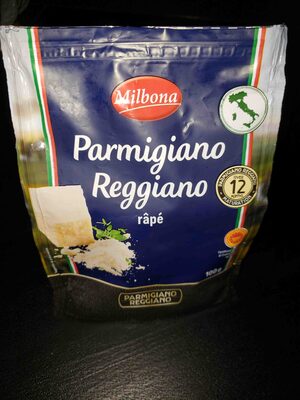
Barcode: 4056489533979
Parmigiano Reggiano
HALAL
📝 Reason: Parmigiano Reggiano is made from raw milk and présure. Milk is Halal, and présure can be Halal if derived from Halal slaughtered animals or microbial/synthetic sources. Without specific Haram ingredients or E-codes, the product is considered Halal.
📄 Certificates: None
Ingredients:
Details
Is Parmigiano Reggiano Halal? A Comprehensive Look
Parmigiano Reggiano is a renowned Italian cheese, celebrated for its rich flavor and unique texture. A common question among consumers, particularly those adhering to Islamic dietary laws, is whether this cheese is halal. Understanding its halal status involves examining its ingredients and how they conform to halal guidelines.
Understanding the Ingredients
The primary ingredients of Parmigiano Reggiano include:
- Lait cru (Raw Milk)
- Présure (Rennet)
Let’s delve deeper into each ingredient to gauge its halal status.
1. Raw Milk (Lait cru)
Raw milk is a staple in many dairy products, including Parmigiano Reggiano. Milk is generally considered halal, provided it comes from permissible animals and is not contaminated with haram (forbidden) substances. According to Islamic dietary laws, milk sourced from halal animals, such as cows, goats, and sheep, is acceptable. Therefore, as long as the milk used in this cheese is derived from halal-certified animals, it can be confidently labeled as halal.
2. Rennet (Présure)
Rennet, or présure, traditionally originates from the stomach of young calves, which raises concerns regarding its halal status. In the case of Parmigiano Reggiano, the rennet must come from animals that were slaughtered in accordance with Islamic law to be considered halal. Alternatively, many manufacturers now use microbial or synthetic rennet, which is widely accepted in halal food production. This versatility in sourcing ensures that Parmigiano Reggiano can meet halal certification requirements.
Halal Status of Parmigiano Reggiano
Based on the ingredients discussed, Parmigiano Reggiano holds a halal status. The milk used in the cheese is halal, and the rennet can be halal if sourced correctly. Since there are no specific haram components present, Parmigiano Reggiano is indeed halal.
E-Numbers and Other Ingredients
It is also vital to note that there are no additional E-numbers or preservatives commonly associated with Parmigiano Reggiano, which further simplifies its halal status. E-codes usually categorize food additives, and a lack of them in this product indicates the absence of synthetic enhancers or potentially non-halal substances.
Conclusion
In conclusion, Parmigiano Reggiano is a source of culinary delight that aligns with halal standards when produced correctly. Given that both primary ingredients—raw milk and rennet—can be sourced ethically under Islamic guidelines, those adhering to halal dietary rules can enjoy this cheese without concern. As always, it’s advisable to look for credible halal certification or verify the sourcing methods if uncertain.
Why Choose Parmigiano Reggiano?
This delectable cheese not only meets halal standards but also boasts rich flavors and versatility in culinary uses—from grating over pasta to enhancing salads. By double-checking ingredient sources, consumers can confidently make informed decisions regarding their meals while enjoying the authentic taste of Italy.

